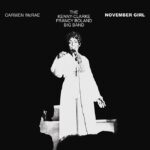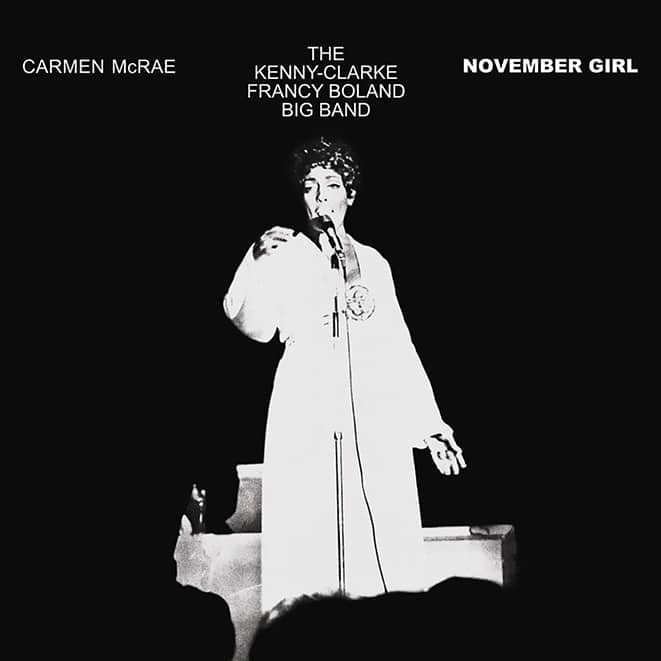One of consolations of the electronic age is that those great moments in music which once were ephemeral and irretrievable can be faithfully captured, preserved for all time and savoured over and over again. Thus, some of the great musical peaks in the ten-year lifespan of the great Kenny Clarke-Francy Boland Big Band are stored for posterity on more than a score of albums. Despite writer Bob Houston’s urgent appeal for a conservation order to be put on this improbable aggregation of flashing talents and clashing egos, the CBBB is unhappily no more and must be regarded as one big band that won’t be coming back. Kenny Clarke, the father of modern jazz drumming, who co-lids the band with the gifted Belgian pianist/arranger Francy Boland, held in to be the second greatest big band in the history of jazz (no prizes for guessing that he reserved the ultimate accolade for a certain tempestuous ensemble led in the late forties by one John Birks Gillespie). And certainly, the CBBB collected high praise throughout its life, stimulating a rare unanimity of enthusiasm among the critics.
The enclosed record, though recorded while the band was in London for an engagement at the Ronnie Scott Club, is now released for the first time. It is unique among the Clarke-Boland Big Band recordings in that it is a showcase for a singer who happens to be one of the most mature, assured and adroit interpreters of the popular song. Carmen McRae is, unquestionably, one of the world’s three great jazz-orientated singers. Like Sarah and Ella she has those priceless gifts of expressions, time, phrasing, pitch and feeling that are the indispensable attributes of the musicianly singer. In a piece I wrote at the time of this recording I noted that what Carmen also had in common with Ella and Sarah was “that elusive quality called style. Impossible to define, but equally impossible to miss when you hear her sing”. I also observed that Carmen’s voice is one which has lived and laughed and cried – and her work on this album certainly underlines that comment. Carmen herself has defined singing as “acting with music” but you can’t escape the feeling when you hear her poignantly vivid evocation of despair on the haunting “Dear Death”, that her mood is informed by the recollection of sad moments in her own life. That is the essence of song interpretation at the highest form of the art.
It was the idea of Clarke-Boland Band the master architect of the CBBB, to bring together on record Carmen and the Clarke-Boland Band. As well as being a tribute to the arranging skills of Francy Boland and to the abundant craftsmanship of the 16 musicians, this album is eloquent evidence of the flair, the comprehension, the dedicated professionalism of Carmen McRae who, with a bare minimum of rehearsal time, coped astonishingly well with some difficult scores, especially considering that six of the eight tunes were completely new to her.
Recalling the session, Carmen says: “Francy did some brilliant arrangements, but we had so little time to get everything together. Added to which, that band was just about the most undisciplined bunch of musicians I’ve ever seen in my life!”. The fact is that the whole album was recorded in the Lansdowne studio between 10 a.m. and 6 p.m. on November 3rd in 1970 and the musicians were probably not at their most sweetly amenable. They were doing three sets a night at the Scott Club and were not exactly leaping about the studio with uncontrollable energy and eagerness. But, undisciplined or not, they certainly took care of business.
At the time of the recording, Carmen had just appeared with the band and guest soloist Dizzy Gillespie at the Opera House in Cologne in what Gigi Campi regards as the best concert the band ever played. That concert, unhappily, went unrecorded – so we must to grateful for this studio session, which thought it doesn’t feature Diz on trumpet, does have him unofficially contributing a little extra percussion “Just Give Me Time”.
Mike Hennessey




